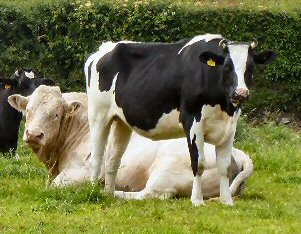It was rough on those coal boats. They worked with tubs. There was a derrick on two masts. A man drove it with a winch. There were four tubs in the hatch all the time. And one in the air all the time. Two men per tub were constantly shovelling. When the hook appeared the tub was taken, full or not. At times it was overfilled and a man would often be struck by a falling coal. He was slung in the back of a cart and taken to Daisy Hill. My dad left home at 2 am to walk to Newry. Or 12 to start at one. The tides dictated the times of the boats’ docking. At times the work was done by oil-light. You had to buy your own shovel. You had to give 1.5d per tub for the wear and tear of your gear. You had seven hours to empty the boat to have her ready for the next tide.
How much might you earn? Well, from one boat, with one hatch, a Thin Lizzie, about 6/6. You’d check the newspaper for the tides. There was work for carters as well. [Men with horse and cart in which to ferry the coal]. They might go as far as Cross or Newtown with a load of coal. Much went to the gasworks. It was a common sight to see women with shawls around them wait at corners to gather coals that might fall off there. It was not unknown for the carter to drop some deliberately. And occasionally these generous souls would be seen and reported by Fisher’s men. Charges would follow. Kevin remembered one magistrate’s comment:
‘What would you expect? Wasn’t his father a thief too?’
If you got yourself ‘blacklisted’, you were done for altogether. Then there were grain boats, and when they were emptied they’d have to be swept out to make them ready for the next cargo. Young lads would ask for the sweepings for their pigeons. He’d have to avoid the harbour constable who frowned on this practice.
The sailors who worked the boats had a hard life too. They were forever racing tides and working through their holidays. They’d even work Christmas Day, for it wasn’t then observed in Scotland, for example, that preferred Hogmanay. Paddy O’Keefe worked on the Rowan. Away from home and paid on a Thursday, they’d wire the money home to the womenfolk who’d get it on a Saturday, desperate for it. Bosses liked to humiliate their workers, teasing and humiliating staff before handing it over.
Finally, from Kevin, a few miscellaneous comments. The people then still have a few odd words in the Irish language. His father remembered the building of Cloghogue Chapel in the twenties. It was Neery, a lawyer that built it. He went broke building the Parochial House attached.
A Kerryman, married to his cousin, couldn’t believe the
